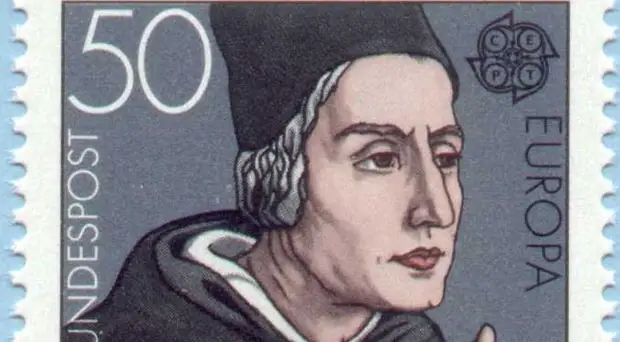
Early Life
Albertus Magnus, known as ‘Sankt Albert der Grosse’ in German language and in English ‘Albert the Great’ and ‘Albert of Cologne’ was born in between 1193 and 1206 in Lauingen in Bavaria; however the exact year of his birth remains unidentified. He has been called ‘Magnus’ by many of his contemporaries because of his great repute as a scholar and philosopher. His works made him famous as one of the leading scientists of the middle ages. He was son of a well off Lord therefore he received the best possible education of the time. He went to the University of Padua to study liberal Arts joining the Dominican Order in 1223. Magnus received his doctorate from Paris. He also continued his education at Bologna and Germany where he started teaching theology in various convents. Magnus taught at Regensburg, Freiburg, Strasbourg and Hildesheim for many years. He made a career out of teaching and became a lecturer in the Dominican convent of Saint-Jacques at the University of Paris.
More about Magnus
Magnus had received instructions about Aristotle’s writings which made him a great Aristotelian enabling him to study and comment on teachings of other academics such as Avicenna and Averroes. His attitude towards science and alchemy was far ahead of other scientist of his time. He wanted to compile all the knowledge of the era in one comprehensive work. He wrote more than seventy books and papers and if combined his written work add up to twenty two thousand five hundred pages. His writings were put together in 1899 in 38 volumes. He not only taught theology but also lectured on mathematics, logic, economics, rhetoric, ethics, zoology, chemistry, mineralogy, phrenology, politics, metaphysics and many other divisions of science.
He also did some work in astronomy, realizing that the Milky Way consisted of stars. He also worked in the fields of geology and botany doing a substantial amount of work in both. His written works includes ‘Physica’, ‘Summa theologiae’ and ‘De Natura Locorum’.
Magnus went to Cologne in 1248 and organized the first Dominican ‘Stadium Generale’ or ‘General House of Studies’. He continued with his research and writing while he shared the seat of president of the institution with Thomas Aguinas. He left Cologne many times but always returned to teach here. In 1254 Magnus became the provincial of ‘Teutonia’ for three years. After that he was appointed as the bishop of Regensburg in 1259, a position that he left after the death of Pope Alexander in 1261. He finally decided to settle in Cologne in 1270.
Death and Commemoration
His remarkable scientific knowledge along with his other interests such as music made him a complete asset to the scientific world. He overruled the idea of ‘music of the spheres’ as being absurd as according to him the astronomical bodied had no capability of producing any kind of sound. There are many schools, universities and institutes named after him commemorating his influence to the science and philosophy. A plant ‘Alberta Magna’ is named after him for his immense contribution to natural philosophy. The ‘20006 Albertus Magnus’ is also an asteroid named after him. The great scientist and philosopher, bishop and a man of many other traits died on 15th November 1280 in Cologne.